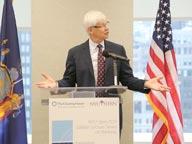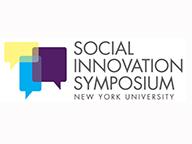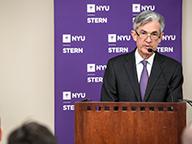Research Center Events
—
New Venture Showcase
—

The NYU Stern Berkley Center for Entrepreneurship and Innovation will welcome alumni, angel investors, venture capitalists, entrepreneurs and industry innovators to the 2015 New Venture Showcase and Reception on February 25.
Research Center Events
—

The NYU Stern Berkley Center for Entrepreneurship and Innovation will welcome alumni, angel investors, venture capitalists, entrepreneurs and industry innovators to the 2015 New Venture Showcase and Reception on February 25.




















